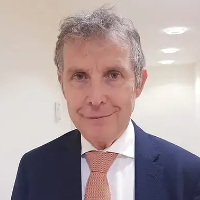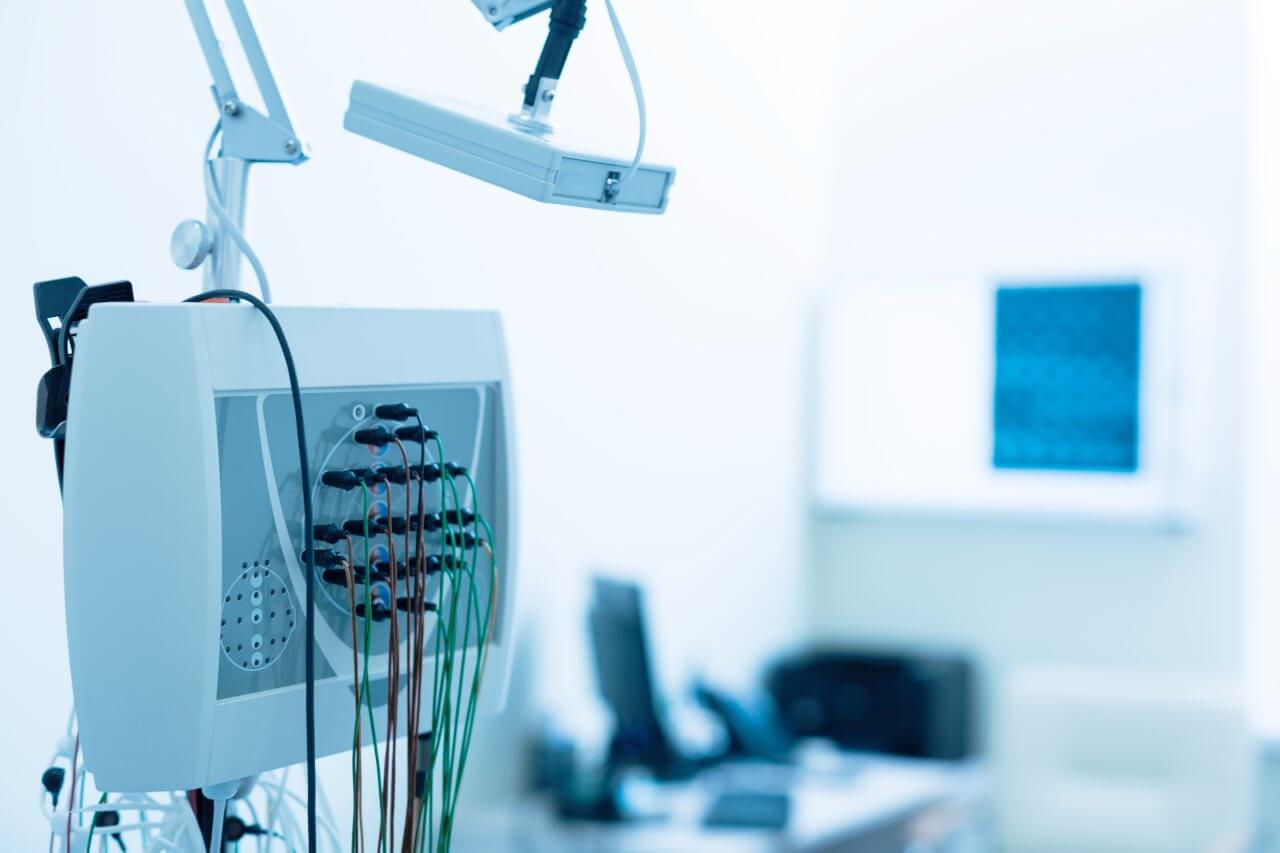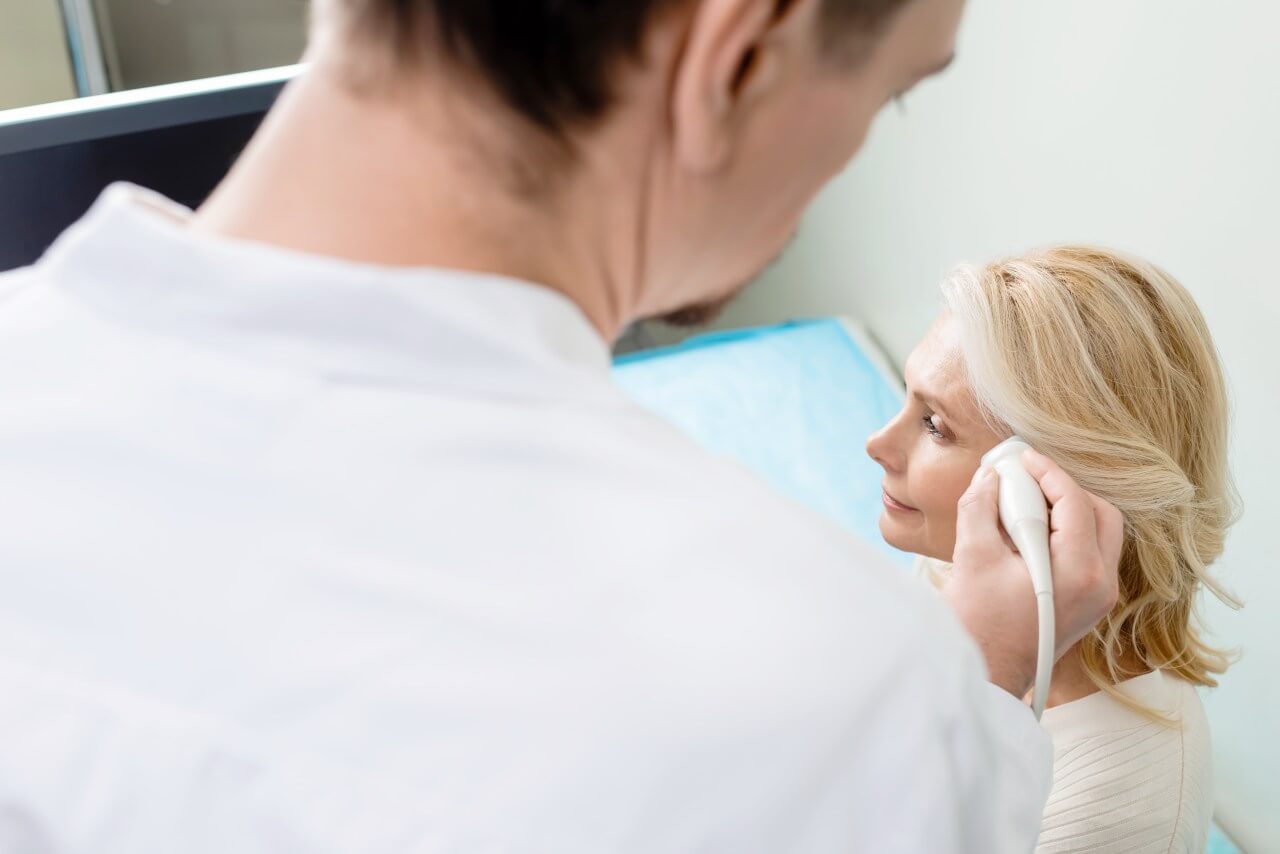
The program includes:
- Initial presentation in the clinic
- clinical history taking
- physical examination
- neurological examination
- reflexes
- muscle strength
- muscle tone
- senses of touch and sight
- coordination
- balance
- ECG
- laboratory tests:
- complete blood count
- biochemical analysis of blood
- enzyme tests
- inflammation indicators
- indicators blood coagulation
- nerve, muscle biopsy (on indications)
- repetitive nerve stimulation
- single-fiber electromyography (EMG)
- pulmonary function tests
- brain CT/ MRI
- electroencephalography
- cerebrovascular doppler ultrasound
- contrast MRI blood vessels examination
- consultation of related specialists
- symptomatic specific treatment
- the cost of essential medicines and materials
- nursing services
- control examinations
- full hospital accommodation
- developing of further guidance
Required documents
- Medical records
- Doppler ultrasound/duplex scanning of the brain vessels (if available)
- Brain MRI/CT scan (if available)
Service
You may also book:
 BookingHealth Price from:
BookingHealth Price from:
About the department
The Department of Neurology at Prof. Christian Franke Neurology Clinic Munich provides the full range of medical services in the area of its specialization. The healthcare facility provides comprehensive diagnostics and effective treatment of diseases of the nervous system. The department's team of doctors focuses on the treatment of patients with Parkinson's disease, multiple sclerosis, epilepsy, cerebrovascular diseases, chronic back pain, chronic headaches, dizziness, restless legs syndrome, and muscle diseases. The therapeutic process begins with a comprehensive neurological diagnosis, including clinical examination, doppler ultrasound, electroencephalography, electromyography, neurography, myography, registration of evoked potentials, laboratory blood tests, cerebrospinal fluid analysis, neuropsychological testing, etc. After studying the results of the preliminary diagnostics, the attending physician prepares an optimal treatment regimen for the patient, which is usually based on drug therapy. In many cases, oral medications, injections, and/or infusion therapy are supplemented with physiotherapy and therapeutic exercises (for example, for multiple sclerosis or chronic back pain). It is important for the department's medical team to provide individualized treatment aimed at achieving the best possible results and improving the quality of life.
The department is headed by Prof. Dr. med. Christian Franke, a competent neurologist with more than 35 years of successful clinical practice. During his work, the doctor has encountered clinical cases of varying complexity, and therefore has the necessary professional skills and expert knowledge to provide effective care to patients with neurological diseases.
The department regularly admits patients with multiple sclerosis, a chronic progressive disease of the nervous system in which foci of demyelination form in the brain and spinal cord. In most cases, multiple sclerosis has a wave-like course, with periods of remission alternating with relapses. The most common manifestations of this neurological condition include poor coordination, muscle weakness, urinary problems, sensory disturbances, fatigue, dizziness, vision problems, and tingling and numbness in the extremities. The diagnostic stage for multiple sclerosis includes magnetic resonance imaging, cerebrospinal fluid analysis, and registration of evoked potentials. The department's specialists then proceed to the elaboration of a treatment regimen. Multiple sclerosis is a chronic disease, so therapy is aimed at managing symptoms, achieving the longest possible remission, and reducing the frequency of exacerbations. To treat an exacerbation, the department's neurologists prescribe an intensive course of therapy with corticosteroids. Once remission is achieved, clinicians switch to disease-modifying therapy, which aims to regulate the immune response, reduce the frequency of exacerbations, and delay disability. During such a course of treatment, interferon beta-1b and interferon beta-1a are prescribed. Physiotherapeutic treatment is also performed to eliminate spasticity and muscle weakness.
The department's team of neurologists successfully treats muscle diseases such as myopathy, myotonia, muscular dystrophies, etc. This group of neurological diseases is characterized by a disorder in the structure or function of muscle fibers. Muscle diseases are transmitted genetically or develop as a result of autoimmune disorders. To make a diagnosis, the department's specialists conduct a clinical examination, followed by muscle strength, reflexes, and coordination testing. The next stage of the complex diagnosis involves electromyography and electroneurography to differentiate muscle disease from myelitis, myopathy, spinal cord tumors, and other neurological pathologies. Patients also undergo different blood tests. If clinically indicated, imaging studies (MRI and/or ultrasound scans) and a muscle biopsy may be performed. As for the treatment, the most commonly used therapy is symptomatic treatment with medications, physiotherapy (a series of physical exercises to maintain muscle strength and elasticity), classes with a speech therapist, and respiratory therapy.
The doctors at the medical facility are also highly skilled in providing medical care to patients with restless legs syndrome. The pathology is a neurological sensorimotor disorder characterized by an irresistible desire to move the lower extremities due to unpleasant sensations in them. Night rest becomes inadequate, and lack of sleep with restless legs syndrome may trigger the development of depression, anxiety disorders, and other serious health problems. The main sign of the pathology is discomfort in the feet and legs, such as burning, itching, tingling, pain, and heaviness in the legs. As a rule, discomfort appears while falling asleep and causes a persistent desire to move the legs. In some cases, discomfort appears during the daytime. Lack of sleep with restless legs syndrome negatively affects the immune system, causing the patient to often suffer from colds. In addition, the pathology leads to changes in heart rate and blood pressure, which increases the risk of developing pathologies of the cardiovascular system. The diagnostic protocol for suspected restless legs syndrome includes studying the patient's complaints, a neurological examination, electroneuromyography, and polysomnography. Blood and urine tests, CT or MRI scans of the brain, and Doppler ultrasound of the blood vessels of the lower extremities may be required to identify the cause of the pathology. Treatment tactics are elaborated depending on the form of restless legs syndrome because the condition can be primary or secondary. In the primary form of the disease, lifestyle modification (moderate physical activity, adherence to a sleep schedule, massage, warm foot bath before bed, etc.) and an individual treatment regimen with oral medications are indicated. If restless legs syndrome occurs against the background of another pathology, treatment aims to eliminate the underlying disease.
The department specializes in the diagnosis and treatment of the following neurological diseases:
- Inflammatory diseases of the nervous system: multiple sclerosis, neuroborreliosis, and others
- Muscle diseases
- Dizziness and balance problems
- Chronic headaches
- Chronic back pain
- Parkinson's disease
- Cerebrovascular diseases, including a stroke
- Epilepsy
- Restless legs syndrome
- Memory and concentration problems
- Brain tumors
- Peripheral nerve diseases
- Other neurological diseases
The department's range of diagnostic and therapeutic services includes the following:
- Diagnostic services
- Ultrasound examinations: doppler ultrasound, continuous wave doppler ultrasound, duplex scanning of the blood vessels in the neck and brain
- Electroencephalography
- Electromyography
- Neurography
- Electroneuromyography
- Registration of evoked potentials
- Cerebrospinal fluid analysis
- Blood tests
- Neuropsychological testing
- Therapeutic services
- Drug therapy: oral medications, injection therapy, and infusion therapy
- Botulinum toxin therapy (Botox injections)
- Physiotherapy
- Therapeutic exercises
- Occupational therapy
- Speech therapy
- Massage
- Other diagnostic and treatment methods
Curriculum vitae
Prof. Dr. med. Christian Franke is the Director at Prof. Christian Franke Neurology Clinic Munich and the Head of the Department of Neurology at this clinic. Prof. Franke completed his professional training in neurology at the Institute of Physiology at the Technical University of Munich. Before establishing his private practice in neurology, he worked as a Physician and then as a Senior Physician in the Department of Neurology at the University Hospital Rechts der Isar Munich. In 1990, Dr. Christian Franke took up the position of C3 Professor at the University of Wuerzburg. He is also a Member of the Bavarian Medical Association.
Photo of the doctor: (c) Münchner Neurologie Prof. Dr. Dr. Christian Franke
About hospital
Prof. Christian Franke Neurology Clinic Munich is a highly specialized medical facility that treats patients with diseases of the nervous system. The clinic has an excellent medical and technical basis for providing professional medical care in accordance with international standards. A competent team of neurologists and nursing staff works with patients and has at their disposal all modern diagnostic and treatment methods to restore the nervous system. The specialists strictly follow the current clinical protocols and recommendations of the German Neurological Society (DGN), which contributes to excellent therapeutic results.
The clinic has gained extensive experience in the treatment of chronic headaches, chronic back pain, dizziness, Parkinson's disease, multiple sclerosis, muscle diseases, cerebrovascular diseases, epilepsy, brain tumors, pathologies of the peripheral nervous system, concentration disorders, and memory disorders.
The team of neurologists at the clinic specializes in the conservative treatment of neurological diseases. In the course of treatment, the specialists most often use modern drugs, botulinum toxin therapy (Botox injections), physiotherapy, therapeutic exercises, ergotherapy, massage, and other methods.
Well-equipped diagnostic rooms at the clinic are used for ultrasound scans, electroencephalography, electromyography, neurography, registration of evoked potentials, blood tests, cerebrospinal analysis, etc. Diagnostic procedures allow for the assessment of the condition of the patient's nervous system and the development of the most effective treatment regimen. The complex of therapeutic measures is prescribed exclusively on an individual basis, with due consideration to the patient's clinical data.
It is worth noting that Prof. Christian Franke Neurology Clinic is located on the central Marienplatz square in the magnificent city of Munich, near the Town Hall. Thus, the patient can receive high-quality treatment and, in the free time between the procedures, take a break, enjoy the beauty of Munich, and get unforgettable impressions of the trip.
Photo: (с) depositphotos
Accommodation in hospital
Hotel
You may stay at the hotel of your choice during the outpatient program. Our managers will support you for selecting the best option.




